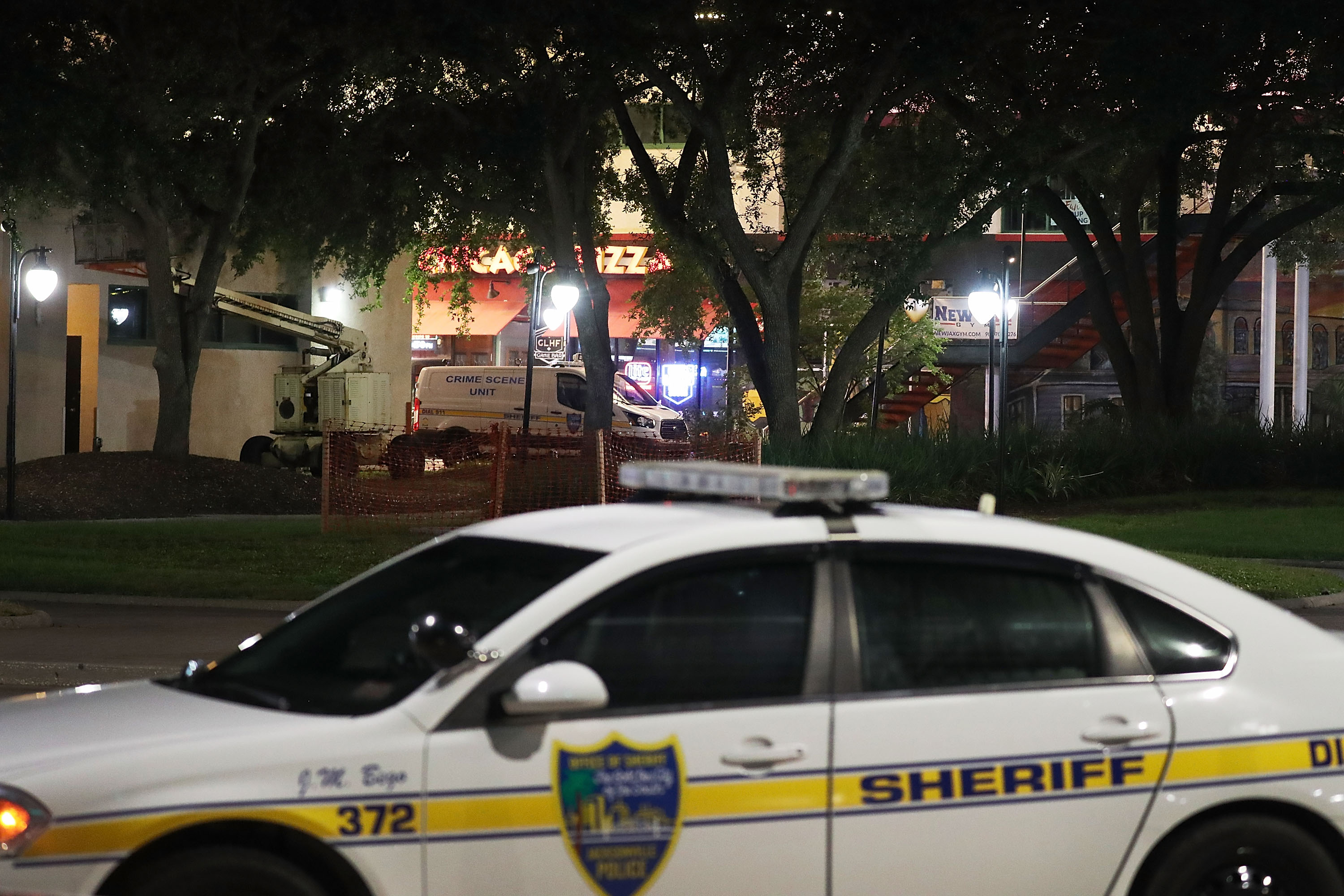Political Report
Policing Practices in Jacksonville: an Interview
An organizer with the Jacksonville Community Action Committee explains why her group is focused on the policing practices of the sheriff’s office, two months from local elections.
An Interview with Maria Garcia, an organizer with the Jacksonville Community Action Committee
Daniel Nichanian
Jacksonville, Florida heads to the polls on March 19 to elect its sheriff. Republican Sheriff Mike Williams is running for re-election against Tony Cummings, a Democrat. The Political Report will return to this election, highlighting the candidates as well as local organizers’ perspectives on the importance of the sheriff’s office.
The Jacksonville Sheriff’s Office (JSO) covers Duval County, and it doubles as the police department for the city of Jacksonville. This means that Jacksonville residents get to elect the head of their police department, an unusual arrangement among larger cities. This week, I spoke with Maria Garcia, a lead organizer with the grassroots organization Jacksonville Community Action Committee, who explained why her organization is focused on JSO’s policing practices. In the course of our conversation, she referenced investigations published in recent years: “Walking While Black,” a ProPublica and Florida Times-Union co-publication that documented the disproportionate share of jaywalking tickets and other pedestrian citations issued by the JSO to Black residents, and “Deadnamed,” a ProPublica article on JSO’s handling of the murders of transgender women.
The interview has been lightly edited and condensed for clarity.
What organizing has the Jacksonville Community Action Committee pursued with regards to policing and the sheriff’s office?
Our organization has started to push for police accountability and community control of the police in Jacksonville, along with raising awareness of police brutality in Jacksonville. We are pushing for a civilian police accountability council like the one that Chicago has been fighting for. In order to have a civilian police accountability council we need to get rid of the Florida law enforcement officers’ bill of rights, which gives officers an extra level of due process that regular citizens don’t have. Under that bill of rights, we actually wouldn’t be able to establish a civilian police accountability council. This council is our main push, as well as supporting the historically oppressed population of our town with material necessities.
In what way is police accountability an important issue in Jacksonville specifically?
Officers have killed unarmed people multiple times. They have landed themselves in the news on a ProPublica investigation, for profiling African American residents for jaywalking, which leads to fines and which leads to arrests. Officers have been accused of police brutality incidents multiple times, and the way that they handled their investigations is through internal investigations, which almost always leads to little to no action being taken against police officers. One notable case is the killing of a mentally ill man, Harold Kraai. He was shot within 10 seconds of the officers arriving. The police was called because the man was having a suicidal episode. The officer who arrived that day had multiple complaints against him and he put several bullets into Mr. Kraai. That is the sort of police culture that we have—it doesn’t seem to matter how many complaints officers have, they are allowed to continue their careers. [Editor’s Note: The JSO has said that Kraai approached officer Richard Futch with a knife and refused to drop it, after which Futch shot Kraai eight times.] That’s why we need police accountability. We also have had four or five murders of Black transgender women happen in or around Jacksonville. When talking to the media about these transgender women, police officers referred to them by their dead names, which hampers the investigations because of a lot of these women were not known by their dead names.
The way that the civilian police accountability would help with this is that we would have the right to give citizens the right to hire or fire police officers. It would give them the right to oversee the training that police officers receive, and basically give the people of Jacksonville an outside force investigating the police.
If anything could be asked from Sheriff Williams, it would be to be accountable for the actions of his police officers and make it so that the citizens of Jacksonville don’t fear JSO or dread JSO’s presence so that they can work for the community.
To what extent do you think elected officials are addressing these issues?
Unfortunately our leadership in the city just likes to turn to sensationalism when it comes to crime and violence in the city. Last year, the Jacksonville Committee came out to a lot of council meetings and we had some members try to adopt our message of police accountability in their communication with the media. But so far nothing has been done to advance these changes. Members of the council overwhelmingly approved the last budget, which awarded JSO a third of the city’s budget, after we pushed them to not give JSO so much money without Sheriff Mike Williams actually coming out with a concrete plan to improve their policing and be accountable to the citizens of Jacksonville. We tried to stop large budget increases without any accountability, but we basically had no support in the end from city council, and they allowed this mayor to pass this ridiculous budget where 30 cents of every dollar goes to the JSO.
Do you think that candidates running for office in the 2019 elections are talking about these issues so far?
We’ve been hearing more of the same from a lot of the politicians who are running. But our hope and our mission is to encourage the citizens of Jacksonville to get these politicians and their local leaders talking about police accountability and about addressing the root issues of crime in the city. That’s part of our push for 2019, we are going to be contacting the elected officials and asking them their position on accountability and addressing poverty in our city.

